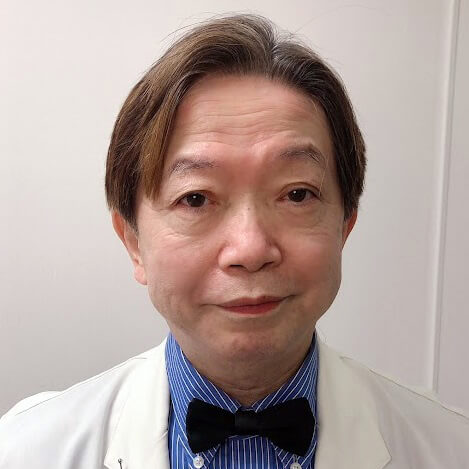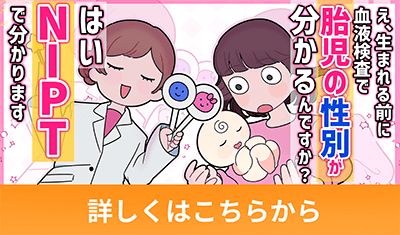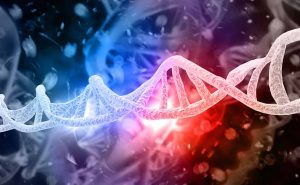Learn about therapy and life for children with Down Syndrome (Trisomy 21), including therapy programs, support services, and advice for families.
What is Down Syndrome Therapy?
Therapy combines “treatment” and “nurturing/education.” It involves medical and educational institutions working together to provide training tailored to each child’s unique characteristics, helping children with developmental delays, such as Down Syndrome, to live independently in the future.
When is the best time to start Down Syndrome Therapy?
Many facilities begin accepting children for Down Syndrome therapy around the age of three. Some facilities are able to start therapy from infancy. The appropriate time to begin therapy varies depending on individual circumstances. Consider your child’s medical condition and overall health, as well as your family’s situation, and consult with a doctor to determine the best time to start therapy.

What is a Down Syndrome Therapy Program?
There is no nationwide standardized Down Syndrome therapy program. This is because therapy is fundamentally tailored to fit the unique needs and characteristics of each individual. There are many different styles of treatment and nurturing/education methods.
Main therapy programs include Physical Therapy (PT) to help infants develop correct posture and walking skills through activities such as rolling over, sitting up, and crawling. Occupational Therapy (OT) helps children use their bodies effectively in daily activities such as dressing, eating, and drawing. Feeding training ensures safe and enjoyable eating, while Speech Therapy (ST) promotes the development of language and communication skills. Psychological therapy is also used to encourage cognitive development. Additionally, there is a specific exercise program called “Baby Gymnastics” designed to promote the physical development of babies with Down Syndrome.
That being said, many facilities have their own unique Down Syndrome programs. For more details, please contact the specific therapy facilities directly.
Handbooks related to welfare services
Here, we provide an overview of the handbooks required for receiving various welfare services for people with disabilities. These handbooks are not automatically issued upon a diagnosis of Down Syndrome; instead, issuance conditions are determined based on the degree of disability. For individuals with Down Syndrome, handbooks may not be issued depending on their condition. For more details, please consult your primary care physician or your local city or municipal office.
Therapy Handbook
The Therapy Handbook is intended to make it easier for individuals with intellectual disabilities to access various systems and services. The available welfare services include assistance with childcare and education, medical expense subsidies, public transportation discounts, tax benefits, and support for schooling and employment. The name of the handbook varies by region: in Kanagawa Prefecture, it is called the “Therapy Handbook,” in Yokohama City, it is known as the “Ai-no-Techo,” and in Saitama Prefecture, it is referred to as the “Midori-no-Techo.”
The Therapy Handbook is issued to individuals who have an intellectual disability recognized before the developmental period (18 years old) due to some cause and continues to persist, have an intelligence quotient below the value specified by each municipality, or require special assistance in daily life, such as medical care, welfare, education, or employment. The degree of disability is classified into four levels, and the services available vary depending on the level.
The Therapy Handbook is issued by the Child Consultation Center for those under 18 and by the Center for Persons with Disabilities Welfare for those over 18.
Physical Disability Handbook
It is designed for individuals with visual, hearing, physical, heart, gastrointestinal, or other disabilities to access various services and systems. Disabilities are classified into six levels (1 to 6), with the services available varying according to the classification.
Services eligible for therapy subsidies
In addition to the Therapy Handbook and the Physical Disability Handbook, there are other services and allowances available for therapy support. Here, we introduce some of these options.
Medical Expense Assistance System for Infants and Young Children
The Medical Expense Subsidy System for Infants and Young Children is a system where local municipalities subsidize the out-of-pocket expenses for hospitalization and outpatient care for infants and young children.
Each prefecture implements this program, with the actual administration carried out by each city, ward, or town. Therefore, the age eligibility, income limits, subsidy methods, and presence or absence of out-of-pocket expenses vary significantly by prefecture. In addition to prefectural standards, each city, ward, or town may further expand the age eligibility and scope of subsidies based on their own criteria.
Special Child Rearing Allowance
Allowances are provided to the guardians of children under the age of 20 with intellectual or physical disabilities. The amount of the allowance varies depending on the degree of the disability. Additionally, there are income restrictions for the guardians to be eligible for the allowance.
Welfare Allowance for Disabled Children
Allowances are provided to children with severe physical or mental disabilities. Eligibility for these allowances is determined based on the grade of the Physical Disability Handbook or Therapy Handbook, and whether the child exhibits problematic behavior.
Medical Subsidy System for Pediatric Chronic Diseases
This is a subsidy system for medical expenses incurred during the long-term treatment of specific chronic illnesses, which can become financially burdensome. In the case of Down Syndrome, assistance is provided only if certain medical conditions are met. The amount of subsidy varies based on income.
Group or individual therapy training
There are both group and individual therapy training sessions. Here, we will explain therapy that is primarily conducted in hospitals.
Training at medical institutions such as hospitals
There are an increasing number of medical institutions that provide pediatric developmental rehabilitation for children with developmental disabilities, including Down Syndrome. The content of the training is determined based on the child’s condition, but it mainly combines the aforementioned PT, OT, and ST. Since a doctor’s assessment is required to start the training, please consult with your primary care physician.
Home rehabilitation
For children who find regular visits to the hospital challenging due to their disabilities, or who need to practice movements at home (such as using the toilet or moving around), staff may visit the home to provide rehabilitation. However, there are still relatively few facilities offering this service. As with training in medical institutions, a doctor’s referral is required. Please consult thoroughly with your primary care physician.

Places where you can consult about therapy
When considering therapy for Down Syndrome, it is crucial to consult thoroughly with your primary care physician. Additionally, for those who wish to seek objective third-party opinions or hear from other parents with children who have Down Syndrome, here are some organizations that provide therapy support.
Down Syndrome Association
The Down Syndrome Association, officially known as the “Japan Down Syndrome Society (JDSS),” is an organization dedicated to improving the quality of life for people with Down Syndrome and their families. They provide practical and helpful information to families and individuals involved with children who have Down Syndrome. Additionally, for the general public who do not have children with Down Syndrome, the association aims to deepen understanding and expand support by explaining Down Syndrome, sharing the current situation, and showcasing the activities of individuals with Down Syndrome.*1
Upon joining, you can receive and borrow newsletters and books that provide a deep understanding of Down Syndrome. You can also participate in various seminars. Additionally, there are telephone consultations available with parents of children with Down Syndrome, offering advice on issues that only those with firsthand experience can understand.
Local therapy groups
In some regions, there are independent therapy groups specifically for children with Down Syndrome. The age requirements and therapy approaches vary by group, so if you find a group that seems suitable, it is a good idea to visit and experience it firsthand.
Local parent associations
By searching for “your region + Down Syndrome + parent association,” you can find local parent associations for children with Down Syndrome. These associations often host a variety of events, such as meetings, lectures, therapy camps, and Christmas parties. They also serve as an active platform for exchanging information closely related to the community.
Conclusion
In summary, we have briefly outlined what therapy for Down Syndrome entails, when it is best to start therapy, the therapy programs available, and the subsidy systems and allowances that can be used. The ideal time to start therapy for Down Syndrome varies depending on each individual’s situation. To choose the best approach for your beloved child, please refer to the knowledge provided here and have a thorough discussion with your primary care physician.
【References】
- Saitama Prefectural Children’s Medical Center – About Development
- Living with Down Syndrome – Information on Down Syndrome (Organizations, Therapy Handbooks, and Support Services)
- Pediatric Chronic Specific Disease Information Center – Medical Expense Assistance
- Tokyo Metropolitan Government Bureau of Social Welfare and Public Health, Tokyo Metropolitan Center for Persons with Disabilities – About the Ai-no-Techo Handbook
- Growth Consultation Room for Considering Children’s Short Stature – Actual Conditions of the Medical Expense Subsidy System for Infants and Young Children
- Himawari-kai Sassatari Hospital – Pediatric Developmental Rehabilitation
- Japan Down Syndrome Society (JDSS)
Learn about therapy and life for children with Down Syndrome (Trisomy 21), including therapy programs, support services, and advice for families.
Article Editorial Supervisor

Dr. Masahiko Ito
Former Professor, University of Health and Welfare, Former Dean, Kashiwa Rehabilitation School, University of Medical Innovation, Member, Japanese Society for Gene Therapy and Japanese Society for Gene Research, etc.
Brief History
1974 – Entered the National Defense Medical College
1979 – Externship at the Department of Pediatrics, Faculty of Medicine, University of Sydney, Australia (Royal Alexandria Children’s Hospital)
1980 – Graduated from National Defense Medical College (1st class). Joined the Department of Pediatrics, National Defense Medical College
Worked at the Department of Pediatrics, National Defense Medical College Hospital, Self Defense Forces Central Hospital, Department of Neonatology, Hokkaido General Health Center for Children, and Mishuku Hospital of the National Public Service Mutual Aid Union
1989 – Research Fellow, Harvard Medical School, USA; Clinical Fellow, Tufts University School of Medicine, USA
1993 – Lecturer of Pediatrics, Saitama Medical College Junior College of Saitama Medical School
1994 – Lecturer of Pediatrics, Saitama Medical College
1997 – Associate Professor of Pediatrics, International University of Health and Welfare, Japan, working in the Department of Pediatrics, Sanno Hospital, Japan
2006 – Special Appointment Professor of Pediatrics, International University of Health and Welfare, International University of Health and Welfare (Pediatrics)
2008 – Honorary Director of Ihatove Hospital (Iwate Rosai Hospital)
2009 – Chairman, Hasuda Yotsuba Hospital, Kokoro no Kizuna Medical Corporation
2010 – Chairman, Ginza Cosmetic Surgery Clinic, Ginbikai Medical Corporation
2011 – Director of Shinkawa Hospital, Tsuruyokai Medical Corporation
2011 – Director of Chiba-Kashiwa Rehabilitation School of Medical Sosei University Educational Corporation
2014 – Director, Niigata Chuo Dialysis Clinic, Aoi Kai Medical Corporation
2016 – Deputy Director, Niigata Seiro Hospital, Aoi Kai Medical Corporation
2017 – Director, Higashi Katsushika Hospital, Fukujukai Medical Corporation
2018 – Director of International Department, AOI International Hospital, Aoi Kai Medical Corporation
Certifications
Doctor of Medicine
Registered as a care support specialist (Care Manager)
Board Certification in Allergology, Japanese Society of Allergology
Certified Industrial Physician by the Japan Medical Association
Board Certification in Pediatrics, Japan Pediatric Society
Passed the Japanese Society of Laser Medicine Medical Specialist Examination
Councilor of the Japanese Society of Pediatric Allergy
Councilor, Japanese Society of Pediatric Psychosomatic Medicine
Councilor, Japan-U.S. Medical Exchange Foundation
Councilor, Japan Internet Medical Association
Board member of the Japan Society for Computer Science
Chairman of the Board of Directors, Nightingale Spirit League
Chairman of the Board of Directors, NPO Defense Health Career Net
Advisor to the Medical Department of Kurokane Prison, Ministry of Justice, and other positions or activities
 中文
中文























